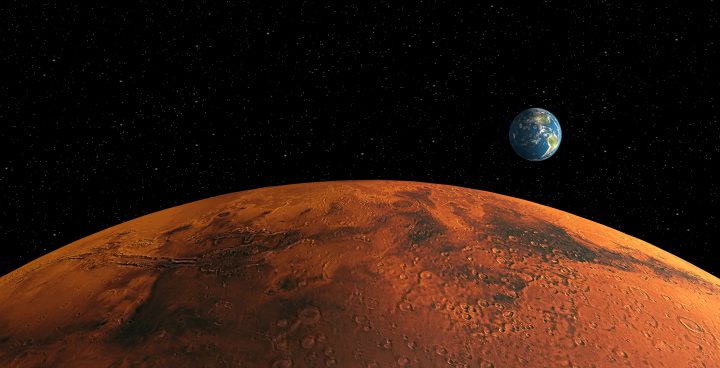The year was 2003.

Jean Chretien was Canada’s prime minister, Beyonce’s “Crazy in Love” was tearing up the Billboard charts and Finding Nemo was among the most popular movies at the box office.
That year also marked the closest that Mars had come to Earth since the Stone Age — and on Tuesday, it will come the closest it has since then.
WATCH: Big Sky Astronomical Society astronomer James Durbano joins Global News Morning Calgary with details on how you can view Mars on July 31st

The event known as “Mars Close Approach” will happen on July 31.
That represents the point in the red planet’s orbit at which it comes closest to Earth.
Mars will be 57.6 million kilometres from Earth on Tuesday, hitting its highest point in the sky at about midnight — approximately 35 degrees over the southern horizon, according to NASA.
READ MORE: How to catch the biggest, brightest view of Mars in years this July
The last time it came so close was on Aug. 28, 2003, when it was within 55.76 million kilometres of Earth, according to EarthSky — and that was the closest it had been in almost 60,000 years.
It will be the year 2287 before it comes that close again, NASA reported.
Earth’s neighbour in the solar system was brightest from July 27 to 30, but it is expected to be visible throughout the night on July 31.
It will grow fainter in the sky by mid-August as the two planets move further from each other.
If you miss this approach, the next time you’ll catch one will be in 2020, when it will be 62.07 million kilometres from Earth.
That’s close, but it’s no 2018 sighting.
WATCH: U of M astronomy instructor talks Mars






Comments